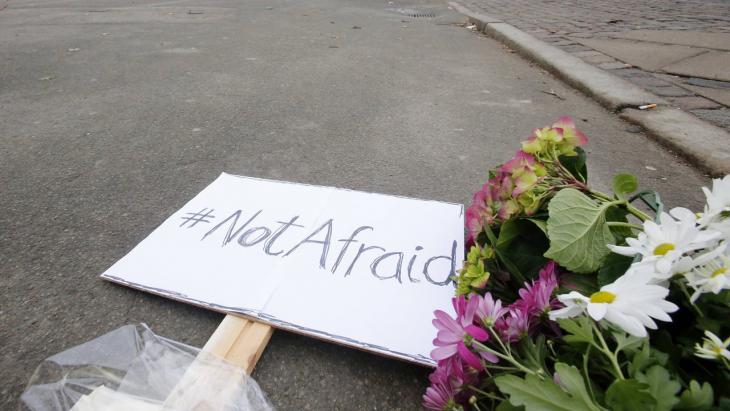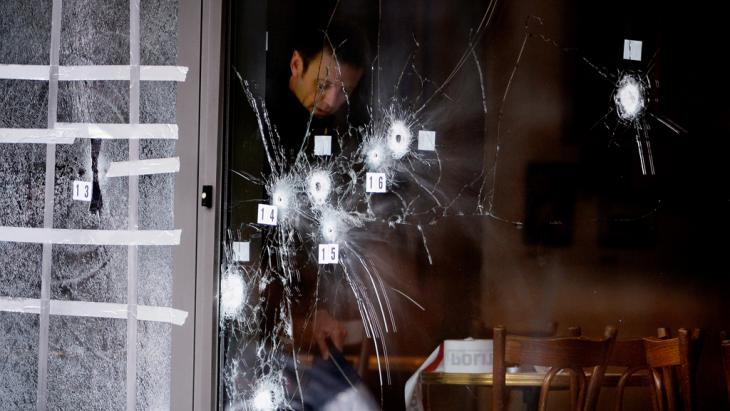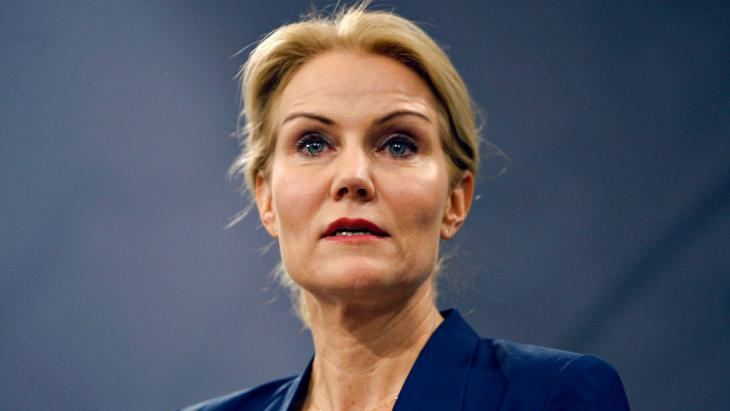"We are not afraid"

The Danish police quickly surmised that the Copenhagen assassin modelled his attacks on those in Paris. It was the three-fold similarity to the shootings at "Charlie Hebdo" and at a Jewish supermarket shortly afterwards that led them to this conclusion: first the attack on freedom of speech, then against Jewish citizens and, ultimately, the final shootout with the police.
The security authorities in Europe are reacting nervously, politicians are reassuring each other of their assistance and support, and the Danish prime minister is swearing to fight all who want to attack Denmark's free and open society. The overall feeling, however, is one of a certain helplessness.
Shortly after the Copenhagen shootings, a carnival parade in the German city of Brunswick was cancelled. Was this an expression of fear and anxiety? Or was there concrete evidence of a planned attack?
Despite all justified caution, even if the police actually have concrete evidence, we cannot let our daily lives be restricted by Islamists who are waging a war on our social order, our customs and our way of life.

No compromise on civil liberties
In principle, after each of these attacks, we must call out in defence of freedom of speech, the same call heard at the impressive demonstration in Paris: "We are not afraid." Admittedly, that is not very easy, but those who allow themselves to be ruled by fear in these circumstances have already lost.
And every attempt to pour oil on troubled waters – whether it be in the form of another blasphemy ban or similar offers of compromise in reaction to the expectations voiced by some Muslims – has already lost as well. After all, what would come after this first step? There have already been reports from various European cities of self-styled Muslim guardians of public morality harassing and threatening girls in short skirts and young people who are out partying. What's next? The requirement that women have to wear headscarves?
The need for an open and critical debate
Our societies in Europe will never conform to the requirements of Wahhabism or other extreme sects of Islam. Nor should they, not at any price and under no circumstances. However, in order to make that clear, the debate with them needs to be conducted more openly and critically.
In this context, it doesn't help to get into theological debates about whether Christianity, Islam or other world religions are more or less belligerent. The recent attacks and the generally aggressive tenor against those of other faiths emanating from a radical wing of Islam cannot be explained or diminished by references to the murderous brutality of the crusaders or the excesses of the Spanish inquisition.
Moreover, the objection raised by the majority of peace-loving Muslims that they should not have to address the extremism of a minority can no longer apply. Under the circumstances, they have no choice but to actively address the hardliners and violent members of their own religion. A political and theological debate within Islam about the development of the religion in the twenty-first century and its relationship with history and tradition is long overdue.
Furthermore, we Europeans should also have the courage to openly lead the political debate in this context on the basis of our legal order: freedom of speech, the separation of church and state, and gender equality are not negotiable.

The constitution applies to everyone
The clash in our societies between modern liberal values and an Islam that does not distinguish between public law and private faith is a real contradiction and cannot be concealed. The freedom to hold dissenting opinions is an achievement that we must defend, since it creates the space in which we can all live our lives as we see fit, whether it be as a Christian, a Muslim, a Jew, a Hindu, an atheist or a follower of another spiritual idea.
No Muslim in our midst may impose his or her concept of earthly and eternal life on followers of other faiths. The same applies to their customs and traditions. At the same time, Muslims enjoy the freedom to practice their religion here, a right that is no longer protected in many Islamic countries.
The basis for co-existence in Germany is the constitution. It contains all the essentials in this respect and it applies, without exception, to everyone who lives within its area of application. The Danish prime minister is right: we need to fight anyone who wants to attack our open, free societies.
Barbara Wesel
© Deutsche Welle/Qantara.de 2015
